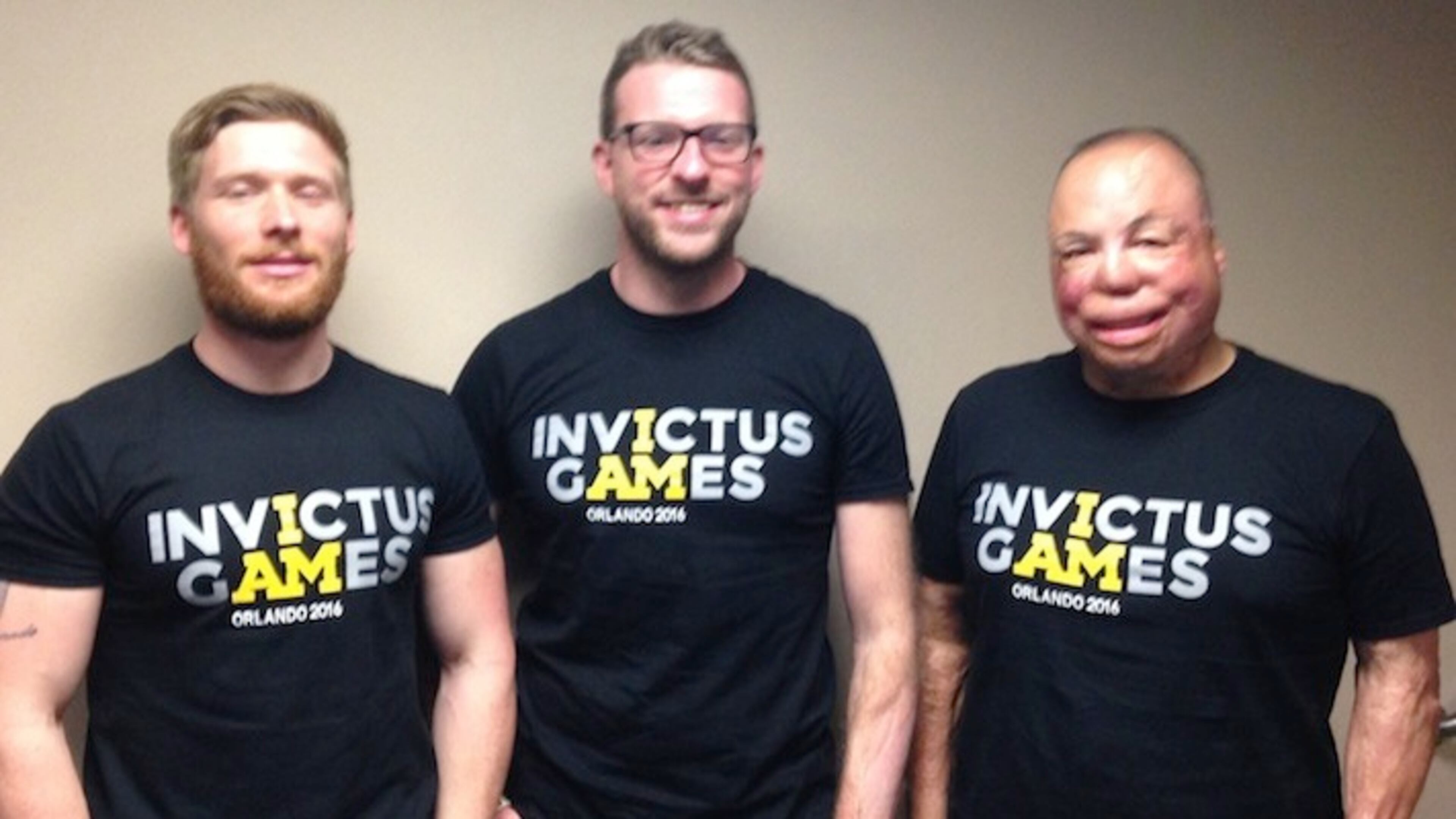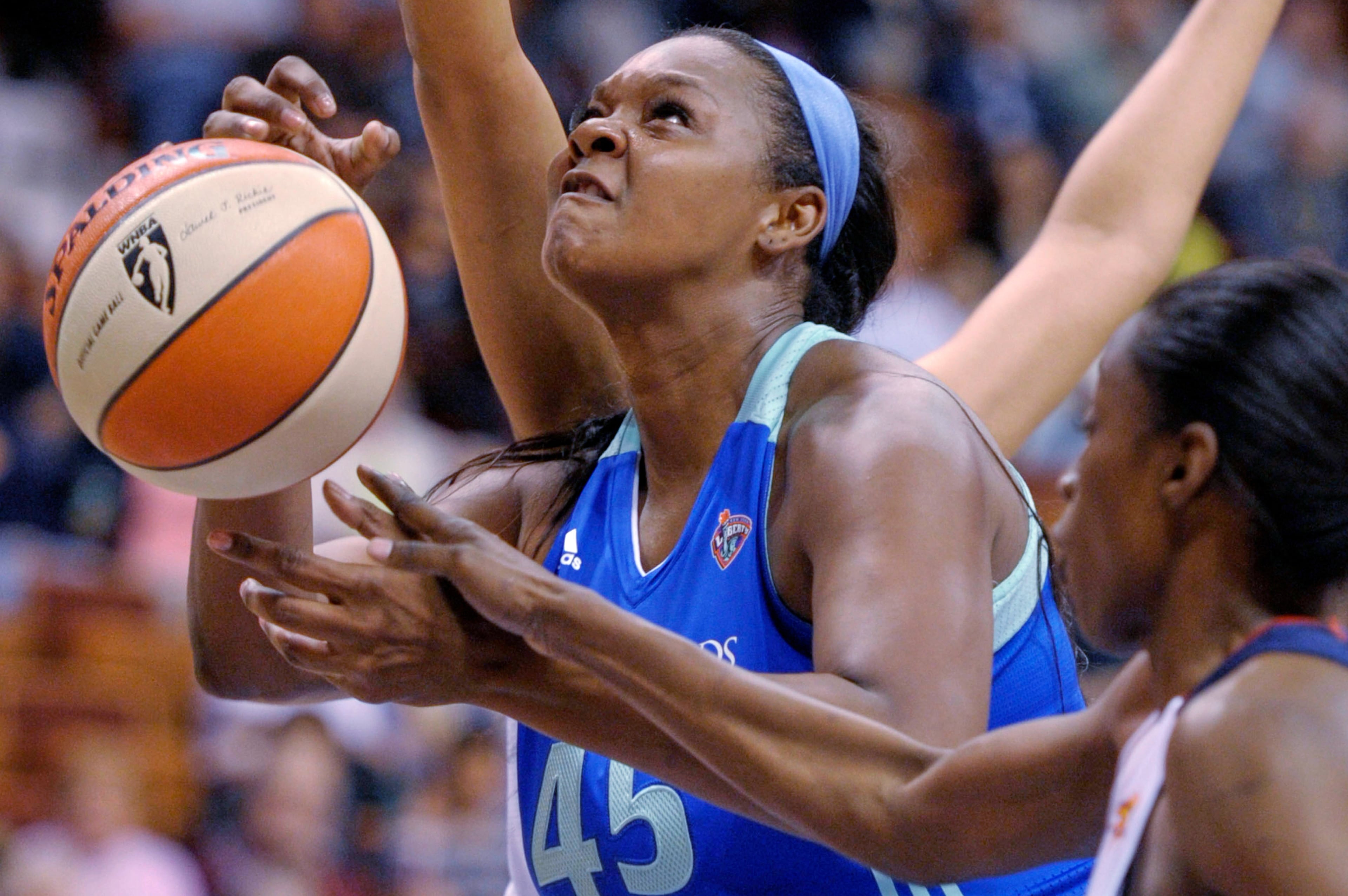Invictus Games empower wounded warriors

After an improvised explosive device detonated in Afghanistan in 2005, Israel Del Toro's body was ravaged.
Undaunted, Del Toro was determined to return to the military, and more than four years after he sustained burns over 80 percent of his body and was given a 15 percent chance of survival, he became the first fully disabled airman to re-enlist in the Air Force.
He is expected to retire after 20 years of service next year.
"I wanted to retire on my terms and not on the terms of the SOBs who left that bomb and tried to end my life," said Del Toro, a master sergeant.
Through his darkest days, Del Toro's eyes rarely strayed from the road to recovery. JJ Chalmers and Louis Nethercott, who served together in the Royal Marines in Afghanistan, had a similar outlook. Chalmers also was the victim of a roadside bomb, and Nethercott was nearby. Although he was not scarred physically, Nethercott battles post-traumatic stress disorder.
In four weeks, their stories will be part of the opening ceremonies of the Invictus Games, an international competition of wounded warriors that was founded by Prince Harry in 2014. This year's Games are set from May 8-12 at the ESPN Wide World of Sports Complex at Disney World.
"JJ had some tremendous injuries, but his mind was intact," said Nethercott, a mental-health ambassador for the Invictus Games. "That's an enormous part of your body to have problems with. The brain is huge.
"Post-traumatic stress can be as debilitating and as crippling on your life as not having any legs can be _ in a very different way. It can really do some damage, and it is not to be underestimated."
The roughly 500 active-duty and retired service members competing in the Invictus Games will step onto this unique stage with varying degrees of disability. Their wounds are real. So is their refusal to be sidelined by them.
"The whole determination of coming through my injuries was not anything particularly new to me," Chalmers said. "It was the most extreme level I have ever had of it. It is the same 'gritting my teeth' that got me through Afghanistan."
Chalmers, 28, said his body "was bludgeoned from head to toe" by a roadside bomb five years ago. His face was crushed and his arms severely disabled. His eardrums burst, among other injuries.
Chalmers was in a hospital for seven months and in rehabilitation for years.
"At first, it was about getting back to a normal standard of life," he said. "After you achieve that, you realize average is not good enough anymore. I have been given this tremendous opportunity that two or three other guys (in my unit) didn't get. They were killed."
Chalmers, a retired Royal Marine commando from Edinburgh, Scotland, medaled in recumbent cycling at the 2014 Invictus Games but is not expected to compete next month. Instead, he will be in Orlando looking to tell the stories he knows so well.
Chalmers is working in TV production, intent on profiling soldiers on the comeback trail.
Nethercott, 26, can relate.
"I saw pretty bad stuff, some hairy situations," said Nethercott, a native of Bristol, England. "I served with some guys who got seriously injured or unfortunately died. On coming home from that particular tour (in Afghanistan), things didn't quite add up for me. Something had changed during the course of that tour _ and changed dramatically.
"It was a different world when I came back."
The Invictus Games in London two years ago dangled a lifeline in front of him. Nethercott went as a spectator, willing to do anything _ carry prosthetics, build bikes, whatever _ but, most important, he wanted to reconnect with his military family.
"I used to call Louis 'The Guy Behind the Pillar,' " Invictus Games co-CEO Vicky Gosling said. "He was always there, but wherever he was, he was always behind the pillar. I remember we were standing in a sports hall once, and I said, 'Where is Louis?' JJ is like, 'Look up there behind the pillar.'
"The fact that we have managed to get him out there and be front line, center stage, is massive, because I saw how he was in 2014. He will change other people's lives."
Nethercott will compete in a wheelchair rugby exhibition at the Invictus Games in Orlando, Fla.
"That experience two years ago gave me back an enormous amount of life, seeing what these guys have achieved," he said. "I have achieved something. I have had my journey. I have been through some pretty rubbish stuff as well."
So had Del Toro.
The Illinois native had scars over most of his body, sustained nerve damage in his right foot, was missing his fingers off both hands and dealt with inhalation burns in his lungs. He was not supposed to walk again and be on a respirator for the rest of his life.
After Del Toro awake from being in a coma for four months, doctors told him he would be in the hospital for up to 1 { years. Del Toro was discharged two months later, breathing and walking on his own.
"I needed to find something that motivated me," Del Toro said. "I love my wife (Carmen) and everything, but it was my son (Israel III). I wanted to show him, 'Dad got jacked up, but Dad is not giving up.' "
This will be Del Toro's second Invictus Games. He is expected to participate in powerlifting, track and field, and cycling. The sports are an important healing agent, but they also can serve as an excellent outreach program.
"There may be some guys who feel down, and it is like, 'What am I going to do?' " Del Toro said. "They will see us out there and go, 'I can still live life. I can still enjoy it.' We might not help everybody, but if we can help one person, it is a big thing."
Huge.
"There is too much bad news in the world," Chalmers said. "Well, I am surrounded by good news, because these are terrible stories, but no, they're not. These are amazing stories of people who are unconquered.
"This is not a sob story. This is a celebration of disability."


